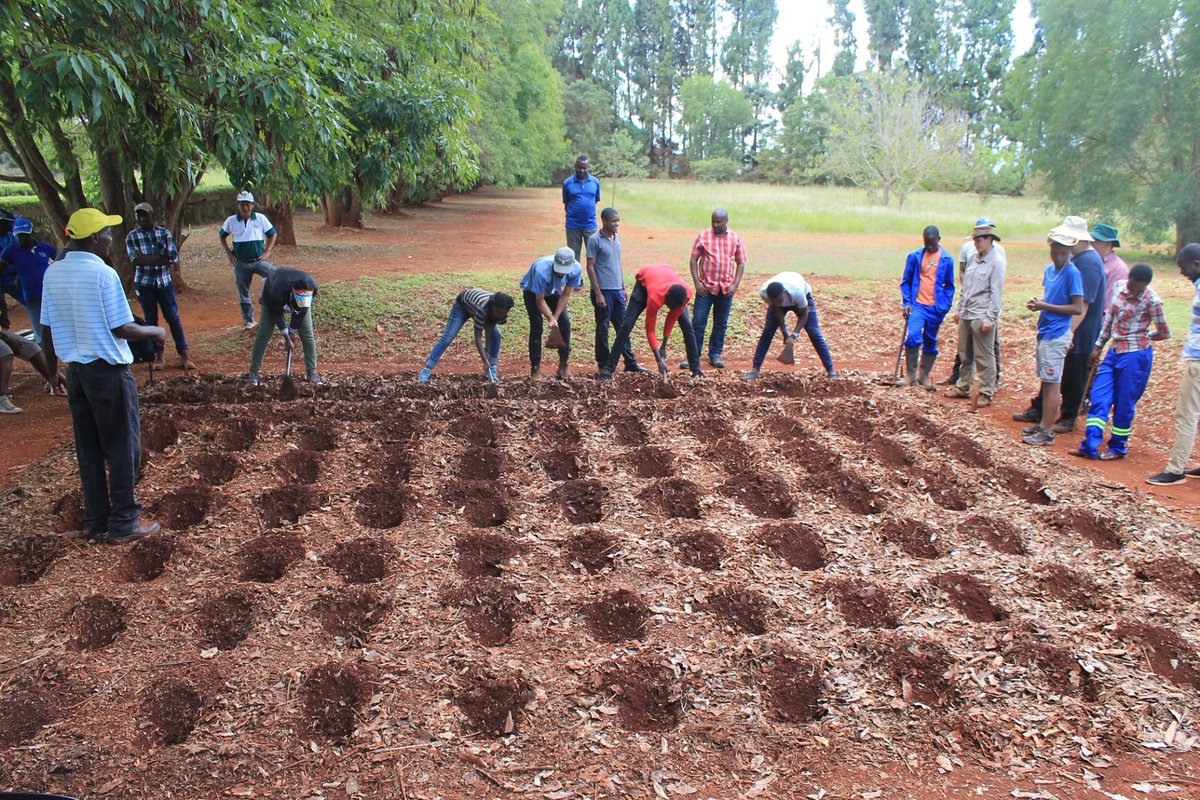Small-scale farmers in all provinces embrace Intwasa programme
SMALL-SCALE farmers across all eight rural provinces in the country have embraced the Intwasa/Pfumvudza programme, which was recently rolled out by Government to ensure food security and preserve depleted foreign currency reserves.
Intwasa/Pfumvudza concept is being promoted by the Ministry of Lands, Agriculture, Water and Rural Resettlement to ensure household and national food self-sufficiency.
It is a farming model drawn from the Foundations for Farming, which is simply based on key principles of conservation agriculture. To achieve high yields all operations must be done to a high standard, without wastage (precision on farming).
Farmers were given a target of 1.8 million tonnes of cereals and 360 000 tonnes of oil seeds in the forthcoming summer cropping season under Intwasa/ Pfumvudza, the climate-proofed upgrade of the Presidential Inputs Programme.
The programme is expected to give households food security and income from surpluses and cash crops to boost national standards of living.
Under Pfumvudza, each of the rural provinces has to average 225 000 tonnes of cereals and 45 000 tonnes of oil seed at one tonne of grain and 200kg of oil seed from the average small-scale farming household.
Smaller household farmers are expected to plant three small fields, harvesting at least 1 tonne of maize and traditional grains from two plots and at least 200 kilogrammes of oil seed from the third.
Farmers registered under the programme in Mabonyani Village in Matobo District, Matabeleland South Province were all smiles yesterday as they received agricultural inputs. The province falls under regions four and five characterised by erratic rains.
Mr Pharaoh Sibanda (70) who is taking care of 22 family members, commended the Government for introducing the concept, saying it will go a long way in alleviating poverty and starvation in rural communities, most of which largely relied on food handouts from the donor community.
“I am taking care of many people who include my children and grandchildren and with this programme, I am assured of addressing our challenges in terms of food security. Once we start harvesting, there will be surpluses, which translates to income for us. Government provided us with inputs right on time and what is left now is to get down to the real business of the day,” he said.
Ms Lucia Moyo (58), a widow, said although she doesn’t have farming implements, she was optimistic that, through Intwasa/Pfumvudza, she would be able to harvest enough food for her nine dependents.
“Now that we have received inputs under the Intwasa programme, it means we have to start planting early ahead of the first rains. Through this programme, we will be able to feed our families,” she said.
Ms Antonetta Ndlovu (77) who is also a widow said: “Government has actually empowered us through this programme, which comes at a time when we are facing starvation due to recurrent droughts. As a widow,
I am really grateful because since the departure of my husband, it has been a struggle to fend for my children.”
“Although I don’t have farming implements, I will be able use my hands with the hope of recording a bumper harvest and be able to take my children to school.”
During the 2020-21 summer cropping season, the Presidential Inputs Scheme will be targeted at promoting Intwasa/Pfumvudza, with priority being given to farmers who would have prepared their land using the technique.
Speaking during the official launch of the Intwasa/Pfumvudza programme in Matobo District yesterday, Matabeleland South Provincial Affairs Minister Abednico Ncube commended farmers in the province for supporting the Government initiative, saying it will cut down the grain import bill and urged farmers to increase the uptake.
Minister Ncube said the programme is meant to support at least 106 000 households in Matabeleland South with standardised input packages of seeds, 25 kgs of lime, 50kgs of basal and 50kgs of top-dressing fertiliser.
The package is enough to cover two 0,06 (2 x 0,06) hectares plots.
“Beneficiaries are expected to fully and religiously adopt conservation agriculture principles as a way to climate proof the programme. One plot is enough to feed an average family of five people for a year while the other plot will produce surplus for sale,” said Minister Ncube.
He said if properly implemented, the programme would ensure household and national food and nutritional security.
“This programme, however, requires a full-bodied and a well capacitated extension delivery system for technical backstopping, tracking and monitoring. Each extension field officer is required to establish at least one demonstration plot and given targets to train, track and monitor the adoption of conservation agriculture by 350 farming households,” said Minister Ncube.
He commended President Mnangagwa for providing inputs for the programme on time, saying there were prospects of success.
“Under Intwasa/Pfumvudza, the Government has provided the necessary inputs and extension officers are also available for technical assistance hence there is no reason for not participating in this programme. For a long time, Government has been importing food to feed its citizens and His Excellency, President Mnangagwa is calling us to change by adopting farming techniques that will ensure we have enough yields given the climatic changes we are experiencing,” said Minister Ncube.
“If Matabeleland South is able to produce enough cereal for itself, it means we are food secure as a province. Such a scenario will also enable Government to direct funds to other critical projects such as construction of dams, health care provision, irrigated fodder schemes instead of importing grain every year.”
Host farmer, Mr Sibanda said: “I have been growing my crops using this Intwasa method for the past three years and it has been productive. Now that Government has provided us with agricultural inputs, it means more yields.”–chronicle.co.zw












